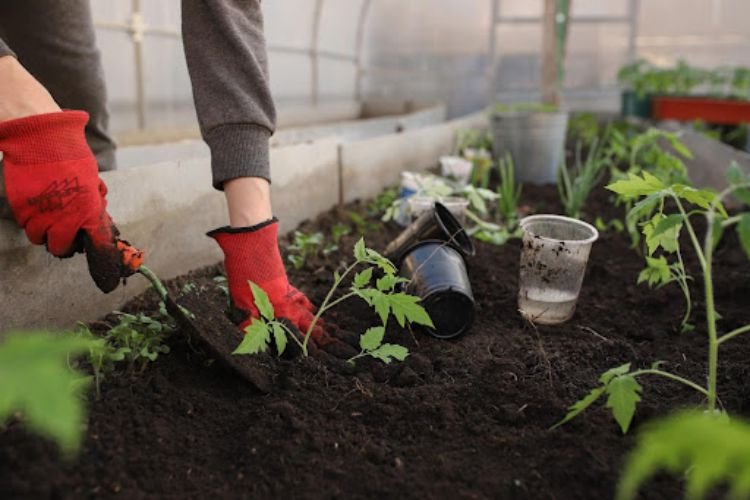 Organic food gardening is becoming the latest trend that does not show any signs of slowing down. In the current era, people are much concerned about their health following a strict healthy routine of vegetarian, vegan diet plans, and working out in gyms.
Organic food gardening is becoming the latest trend that does not show any signs of slowing down. In the current era, people are much concerned about their health following a strict healthy routine of vegetarian, vegan diet plans, and working out in gyms.
For a healthy lifestyle, the most important point is what you eat. Organic homegrown food is an excellent choice for a healthy lifestyle because you have complete knowledge about its purity. Organic foods are free from fertilizers, chemicals, and all other nasty substances reducing their nutritional value.
You should be happy whether you are growing a large organic garden or setting a few herb pots at your window side. Since you know that the ingredients in your dish are coming straight from the soil in your kitchen without any additives.
If you are also opting for this eco-friendly process to get homegrown fruits and vegetables then this article is for you. Here, you will get to know how to grow an organic food garden at home.
What is organic gardening?
Organic gardening is an environmentally friendly process in which you grow your own food at home without using man-made harmful chemicals, fertilizers, or pesticides. It involves the ancient gardening approach which creates a positive impact on the environment, health, and wildlife as well.
The common practice for organic gardening includes
- Using natural and organic pesticides
- Avoiding the use of any plastic or harmful material for the environment
- Creating home-made compost
- Recycling and reusing containers and other tools for planting
- Using sustainable fertilizers
- Encouraging wildlife
How to grow organic food basic guideline
-
Gardening products
Before starting work first, you need to plan a garden. The most significant part is the selection of products that you will need for your organic garden.
Some of the major products include seeds, plant pots, potting soil, fertilizers, compost, tools, and pesticides. If you live in the UK, then you should definitely avail gardening naturally discount code. Since organic gardening is quite expensive but with this code, You can buy a wide range of organic gardening products at a reasonable price.
-
Choose the right place
If you live in an apartment you don’t have plenty of options apart from planting your organic herbs in plant pots. If you own a big house with a backyard or garden in it then you can plan a lot of things.
The location of your organic garden should at least face 8 hours of sunlight daily. It is necessary since plants require sunlight for photosynthesis. The gardening area should be easily accessible by water, compost, tools for maintenance and harvesting.
The area should be near your house so you can easily harvest while cooking your meals. As gardening is time-consuming, you should plan the size of your garden according to your availability and the amount of product you will eat.
It is always better to start with small steps. Plan For a small pot garden that you can easily manage. In the worst scenario, if unsuccessful then you will be less disheartened.
-
Soil preparation for the garden
The soil for the organic garden should be enriched, fertile, full of life, and vital so plants can absorb nutrients and water from the soil.
Prepare homemade compost, live mold, and rotted manure. The substances will release nutrients slowly to the soil and stimulate the growth of essential microorganisms. You can grow green manures, mycorrhizal fungi, and supply natural liquid to improve soil texture.
-
Selection of vegetables and fruits to grow
For an organic garden, the seeds of fruit and vegetables should be organic free from harmful chemicals, fertilizers, and pesticides. Therefore, you should select those fruits or vegetables whose organic seeds are available in the market.
The most common vegetables you can grow in a house garden include peas, radishes, carrots, peppers, baby onions, chilies, and herbs including mint, coriander, parsley, cilantro, thyme.
-
Protection of your organic garden
Once you enrich the soil and plant your desirable fruits and vegetables now it is time to take care of them. You should pay attention to which plant needs water to be rescued from spoilage. Inspect your organic garden on a regular basis to prevent any kind of pest or disease at the very moment. You can also install barriers or cages around the ripening crops.
Conclusion
Growing an organic garden is not an overnight journey rather it takes plenty of time and effort. However, once your organic garden starts growing it will be self-sufficient for you.




